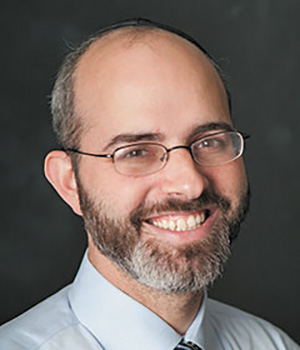
May these words of Torah serve as a merit le’iluy nishmat Menachem Mendel ben Harav Yoel David Balk, a”h.
This week we learned Bava Kama 73. Here are some highlights.
If he mistakenly began his Shemoneh Esrei of Shacharit with the words “Ki Sheim Hashem,” should he complete the verse?
Petition is to be linked to redemption. The Shemoneh Esrei of Shacharit is to be linked to the final blessing after Shema, “Blessed are You, Hashem, Who redeemed Israel.” The Talmud (Berachot 4b) teaches that one who is praying should not interrupt with any statement between reciting “Blessed are You, Hashem, Who redeemed Israel” and beginning the silent prayers of the 18 Blessings. It asked, how then can one begin the Amidah with the words of the verse in Psalms (51:17) “אדנ-י שפתי תפתח ופי יגיד תהלתך”—“My Lord, open my lips, that my mouth may declare Your praise”? These words seem to be a break between blessing about redemption and the petition of the Amidah. It answered that since the sages instituted that before the Amidah of the morning we are to recite this verse, these words are considered part of the Amidah.
In the afternoon prayer we do not have a blessing of redemption that we must ensure is not interrupted before the silent Amidah. It is our practice, therefore, to add another verse before we say the verse of “My Lord, open my lips…” We recite the verse from Devarim 32:3, כי שם ה׳ אקרא, הבו גדל לאלו-ה-ינו, “When I call out the Name of Hashem, ascribe greatness to our Lord.” Rav Zilberstein felt that our Gemara would provide insight for the following scenario: A Jew was praying the morning prayer. He took his three steps back and then stepped forward to begin the silent Amidah. He forgot it was Shacharit. He stated, “ כי שם ה׳,—When I call out the Name of Hashem.” He then realized that he was in the morning service and he had just interrupted between redemption and petition. What should he do? Should he complete the verse and say “אקרא, הבו גדל לאלו-ה-ינו”? Perhaps he should stop, and immediately transition to the morning Amidah by stating “שפתי תפתח ופי יגיד תהלתך” ? The word Hashem, that he recited for “Ki Sheim Hashem,” can now be ascribed to “Hashem, sefatai tiftach.”
Rav Zilberstein initially thought that he should continue with the rest of the verse that he began, say “אקרא, הבו גדל לאלו-ה-ינו,—I call, ascribe greatness to our Lord,” and then continue with “Hashem sefatai tiftach.” This should be the ruling for several reasons. One, the Talmud in Taanit (27b) and Megillah (22a) teaches that we are not to end a verse in a spot different from where Moshe ended the verse in the Torah. If our individual would not complete “When I call out the Name of Hashem, ascribe greatness to our Lord,” he would be ending a verse in a location where Moshe did not end it. Secondly, if he will stop the recital of the verse he started, and transition to a different verse, he will have mentioned Hashem’s name in vain. Third, he has already interrupted between redemption and petition. What would be gained by not completing the verse he started? Let him finish the verse and then move on to the standard text of the Amidah.
Ultimately, Rav Zilberstein ruled that based on our Gemara he should interrupt what he started and transition to “שפתי תפתח ופי יגיד תהלתך” and continue with the rest of the Amidah. Our Gemara taught about toch kedai dibbur, within a few words. It taught that if someone said a sentence and within the amount of time to say two words, “shalom aleichem,” added or changed what he said, the addition or change would take effect. Halacha views what is added within the two-word timeframe as having been said simultaneously with the original sentence. Therefore, he would gain a great deal by immediately transitioning to “שפתי תפתח ופי יגיד תהלתך.” He had said “Ki Shem Hashem.” Transitioning to “שפתי תפתח ופי יגיד תהלתך” moves the word Hashem to the verse. Now, there are only two words, Ki Sheim, interrupting redemption from petition. Since a two-word gap is still part of the sentence, halachically it is as if there has been no break between the sentence of redemption and the first blessing of the Amidah.
In terms of the issue of dividing a verse, Rav Zilberstein pointed out that we divide a verse during our Friday night Kiddush. We begin with the words “יום השישי ויכולו השמים.” This is only a fragment of a verse. Shut Chelkat Ya’akov quoted Chatam Sofer who asked, how can we recite this verse fragment? Is it not a violation of the law not to stop a verse in a spot other than where Moshe stopped? He answered that we begin Kiddush with these four words, for the first letters of the words spell out Hashem’s name, י-ה-ו-ה. In addition, our sages did not wish to recite the entire verse, for on this verse the Midrash interpreted the words tov me’od, very good, to be a reference to death. It would not be a positive omen to begin Kiddush with a reference to death. We learn from this that when we do not have a choice we may interrupt a verse. Therefore, Rav Zilberstein ruled that the person should stop in the middle of the verse he started and continue with “שפתי תפתח ופי יגיד תהלתך”. Such actions save him from Hashem’s name being mentioned in vain. Based on the ruling of our Gemara, since there was only a two-word interruption, it would not be considered dividing redemption from petition. (Chashukei Chemed)













